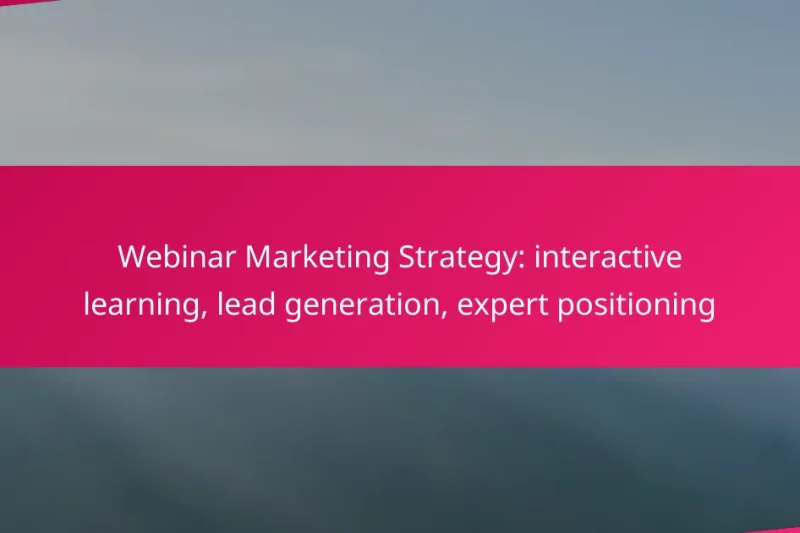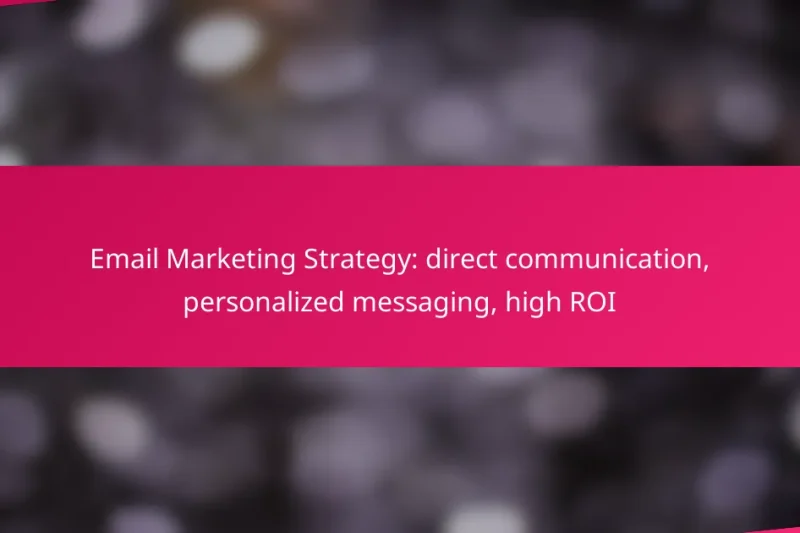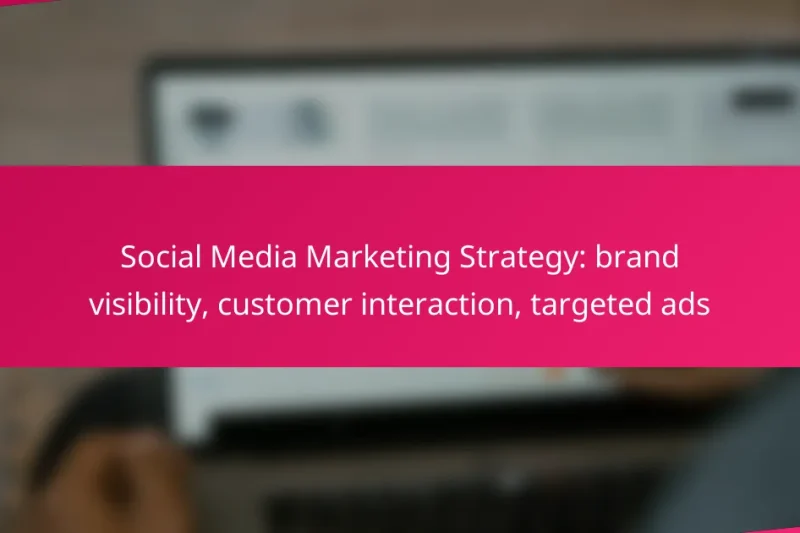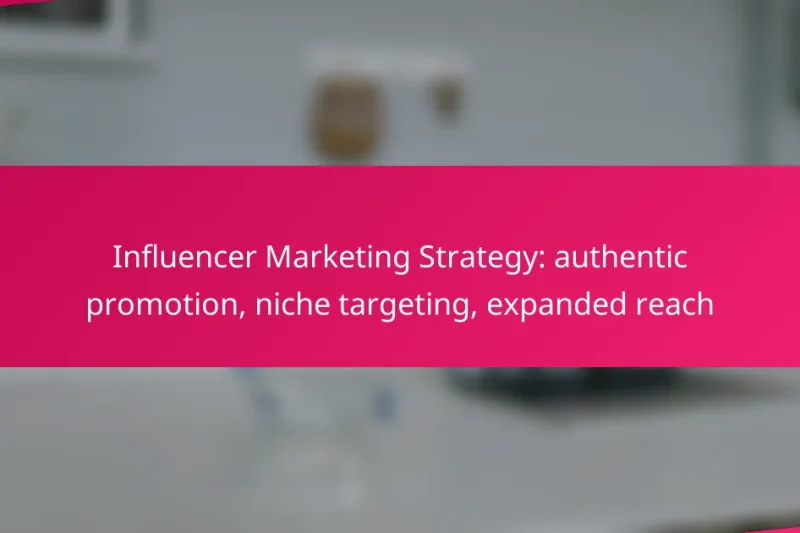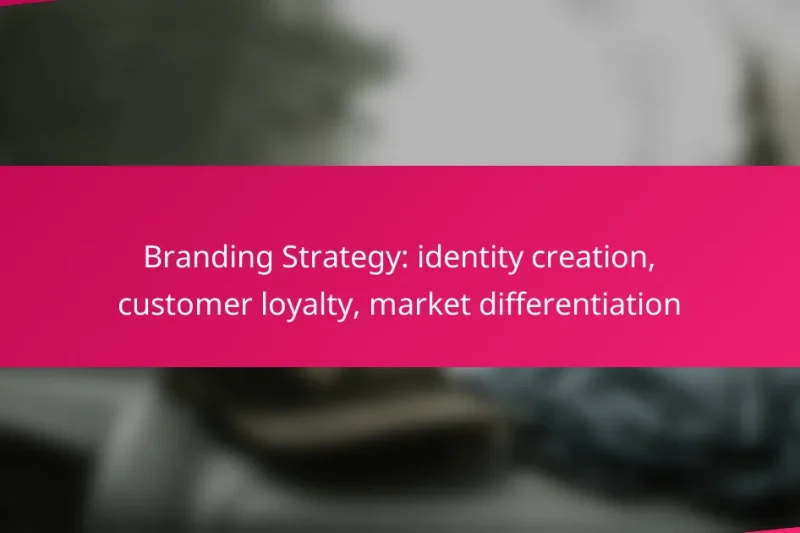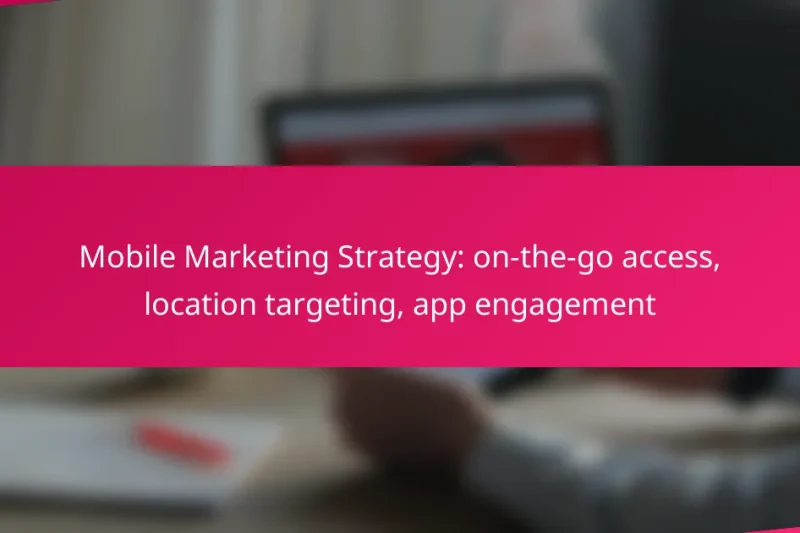Webinar marketing strategies are essential for engaging your target audience while delivering valuable content that drives … Webinar Marketing Strategy: interactive learning, lead generation, expert positioningRead more
Reasons to Choose Specific Digital Marketing Strategies
In today’s competitive digital landscape, selecting the right marketing strategies is crucial for business success. Effective approaches like SEO, social media marketing, and email marketing not only enhance visibility and engagement but also foster long-term relationships with customers. By understanding and implementing these strategies, businesses can drive relevant traffic, optimize advertising costs, and achieve sustainable growth.
Email Marketing Strategy: direct communication, personalized messaging, high ROI
Email marketing is a powerful tool that thrives on direct communication and personalized messaging, allowing businesses … Email Marketing Strategy: direct communication, personalized messaging, high ROIRead more
Social Media Marketing Strategy: brand visibility, customer interaction, targeted ads
In today’s digital landscape, a robust social media marketing strategy is essential for enhancing brand visibility … Social Media Marketing Strategy: brand visibility, customer interaction, targeted adsRead more
Influencer Marketing Strategy: authentic promotion, niche targeting, expanded reach
Influencer marketing has emerged as a powerful strategy for brands looking to connect authentically with their … Influencer Marketing Strategy: authentic promotion, niche targeting, expanded reachRead more
Analytics Strategy: data-driven decisions, performance tracking, campaign adjustments
An effective analytics strategy is essential for making data-driven decisions that enhance organizational performance. By identifying … Analytics Strategy: data-driven decisions, performance tracking, campaign adjustmentsRead more
Event Marketing Strategy: community building, brand experience, networking opportunities
Effective event marketing strategies are essential for building community, enhancing brand experiences, and creating valuable networking … Event Marketing Strategy: community building, brand experience, networking opportunitiesRead more
PPC Advertising Strategy: immediate results, measurable performance, budget control
A well-crafted PPC advertising strategy is essential for businesses seeking immediate results and measurable performance. By … PPC Advertising Strategy: immediate results, measurable performance, budget controlRead more
Retargeting Strategy: audience re-engagement, conversion optimization, brand recall
Retargeting strategies play a crucial role in audience re-engagement by reminding potential customers of their previous … Retargeting Strategy: audience re-engagement, conversion optimization, brand recallRead more
Branding Strategy: identity creation, customer loyalty, market differentiation
A well-crafted branding strategy is essential for defining your brand’s identity and establishing a strong connection … Branding Strategy: identity creation, customer loyalty, market differentiationRead more
Mobile Marketing Strategy: on-the-go access, location targeting, app engagement
In today’s fast-paced world, a robust mobile marketing strategy is essential for businesses aiming to connect … Mobile Marketing Strategy: on-the-go access, location targeting, app engagementRead more
What are the key reasons to choose SEO strategies?
Choosing SEO strategies is essential for enhancing online visibility and driving relevant traffic to your website. Effective SEO not only improves search engine rankings but also fosters long-term growth and brand recognition.
Increased organic traffic
SEO strategies significantly boost organic traffic by optimizing your website for search engines. By targeting relevant keywords and improving site structure, you can attract users actively searching for your products or services.
For instance, businesses often see a substantial increase in visitors after implementing SEO best practices, sometimes achieving growth rates of 30% or more over several months. This traffic is valuable as it typically consists of users with a genuine interest in what you offer.
Higher conversion rates
Higher conversion rates are a direct benefit of effective SEO strategies. When your website ranks well for relevant keywords, the visitors you attract are more likely to convert into customers.
For example, an e-commerce site that optimizes product pages for specific search terms can see conversion rates increase by 20% or more, as users find exactly what they are looking for. Ensuring a seamless user experience further enhances these rates.
Long-term cost-effectiveness
SEO is often more cost-effective in the long run compared to paid advertising. While initial investments in SEO may be higher, the ongoing costs are generally lower, and the benefits can last for years.
Unlike pay-per-click campaigns that stop generating traffic once funding ceases, well-optimized content can continue to attract visitors over time, yielding a higher return on investment. Businesses can save significantly by relying on organic traffic for sustained growth.
Improved brand credibility
Implementing SEO strategies enhances your brand’s credibility. Users tend to trust websites that appear at the top of search results, associating high rankings with authority and reliability.
Building a strong online presence through SEO can lead to increased brand recognition and customer loyalty. Companies that consistently appear in search results often enjoy a reputation as industry leaders.
Targeted audience reach
SEO allows you to reach a targeted audience effectively. By optimizing for specific keywords, you can attract users who are more likely to be interested in your offerings.
This targeted approach means that your marketing efforts are focused on individuals who are already searching for solutions you provide, leading to more efficient use of resources. For example, a local service provider can optimize for location-based keywords to attract nearby customers, enhancing relevance and engagement.
How do social media marketing strategies benefit businesses?
Social media marketing strategies provide businesses with a platform to connect directly with their audience, enhancing communication and brand loyalty. By leveraging these strategies, companies can engage customers, increase visibility, and optimize advertising costs.
Enhanced customer engagement
Social media allows businesses to interact with customers in real-time, fostering a sense of community. Engaging content such as polls, quizzes, and live videos can significantly increase participation and feedback from users.
To maximize engagement, brands should respond promptly to comments and messages, creating a two-way conversation. Regularly updating content and utilizing user-generated content can also enhance interaction.
Increased brand awareness
Utilizing social media effectively can lead to substantial increases in brand visibility. Platforms like Facebook, Instagram, and Twitter allow businesses to reach a wider audience through organic posts and targeted ads.
To boost brand awareness, companies should maintain a consistent posting schedule and use relevant hashtags. Collaborating with influencers can also amplify reach and introduce the brand to new potential customers.
Cost-effective advertising
Social media advertising is often more affordable than traditional marketing channels, allowing businesses to reach specific demographics with precision. Platforms typically offer various budget options, making it accessible for small to large enterprises.
Businesses should consider allocating a portion of their marketing budget to social media ads, as even a small investment can yield significant returns. A/B testing different ad formats can help identify the most effective strategies.
Real-time feedback
Social media provides immediate feedback on products and services, allowing businesses to gauge customer sentiment and make necessary adjustments. Monitoring comments and reviews can reveal insights into customer preferences and pain points.
To leverage this feedback, companies should actively track engagement metrics and respond to customer inquiries. Implementing changes based on feedback can enhance customer satisfaction and loyalty over time.
What advantages do email marketing strategies offer?
Email marketing strategies provide businesses with a cost-effective way to communicate directly with their audience, fostering engagement and driving conversions. By leveraging personalized content and targeted messaging, companies can achieve significant results and build lasting relationships with customers.
Personalized communication
Personalized communication in email marketing allows businesses to tailor messages based on individual preferences and behaviors. This approach can include addressing recipients by name, recommending products based on past purchases, or sending birthday discounts. Such targeted messaging increases the likelihood of engagement and enhances customer loyalty.
To effectively personalize emails, consider segmenting your audience based on demographics, purchase history, or engagement levels. Tools like customer relationship management (CRM) systems can help automate this process, ensuring that each recipient receives relevant content.
High ROI potential
Email marketing boasts one of the highest returns on investment (ROI) among digital marketing strategies, often ranging from 4 to 44 times the initial investment. This high ROI is primarily due to its low cost and the ability to reach a large audience effectively.
To maximize ROI, focus on building a quality email list and creating compelling content that encourages recipients to take action. Regularly analyze campaign performance to identify what resonates with your audience and adjust your strategies accordingly.
Direct audience targeting
Email marketing enables direct audience targeting, allowing businesses to reach specific segments with tailored messages. This precision helps ensure that the right content reaches the right people, increasing the chances of conversion.
Utilize data analytics to understand your audience’s preferences and behaviors. By creating targeted campaigns for different segments, you can improve engagement rates and drive more sales. Consider using A/B testing to refine your targeting further and optimize your messaging.
Measurable results
One of the key advantages of email marketing is the ability to measure results accurately. Metrics such as open rates, click-through rates, and conversion rates provide valuable insights into campaign performance and audience engagement.
Regularly review these metrics to assess the effectiveness of your email campaigns. Use this data to make informed decisions about future strategies, such as adjusting send times, content types, or subject lines to enhance performance. Implementing tracking tools can simplify this process and provide real-time feedback on your efforts.
Why is content marketing essential for digital strategies?
Content marketing is crucial for digital strategies as it helps businesses engage their audience, build trust, and drive conversions. By providing valuable and relevant information, companies can attract and retain customers while enhancing their online presence.
Establishes authority in the industry
Content marketing establishes authority by positioning a brand as a knowledgeable leader in its field. By consistently producing high-quality content, businesses can demonstrate expertise and insight, which fosters trust among potential customers.
For example, a financial services company that regularly publishes articles on investment strategies can become a go-to resource for individuals seeking financial advice. This authority can lead to increased brand recognition and customer inquiries.
Supports SEO efforts
Content marketing directly supports search engine optimization (SEO) by creating opportunities for keyword integration and backlinks. Quality content that addresses user queries can improve a website’s visibility on search engines, leading to higher organic traffic.
Incorporating relevant keywords naturally into blog posts, guides, and articles can help businesses rank better in search results. Regularly updating content also signals to search engines that the site is active, which can further enhance rankings.
Encourages customer loyalty
Effective content marketing fosters customer loyalty by providing ongoing value to the audience. When customers find useful information that addresses their needs, they are more likely to return to the brand for future purchases.
For instance, a brand that offers a newsletter filled with tips, exclusive offers, and engaging stories can keep customers connected and invested. This ongoing relationship can lead to repeat business and referrals, ultimately boosting revenue.
